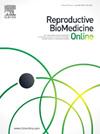试管婴儿会让人幸福吗?
IF 3.7
2区 医学
Q1 OBSTETRICS & GYNECOLOGY
引用次数: 0
摘要
研究一直集中在探索试管婴儿的负面影响。然而,对试管婴儿总体影响的全面了解需要承认其积极的一面。前瞻性和横断面研究表明,无论是否活产,在试管婴儿之前,期间和之后都可以体验到幸福。积极心理学中的社会心理模型支持试管婴儿对幸福和心理健康的内在益处和适应效应,因为它为人们提供了实现、接受和实现(未实现)为人父母目标的机会。PERMA模型被用来探索幸福的概念,有证据表明,在试管婴儿中,幸福可以通过积极的情绪(大多数调查)、参与感、积极的关系、意义感和成就感来实现。试管婴儿的积极生活经验可以通过个体患者的特点来调节,并通过积极关注的护理方法来增强。需要高质量的研究和以患者为中心的护理模式来评估和促进试管婴儿在幸福的各个方面的整体积极价值。本文章由计算机程序翻译,如有差异,请以英文原文为准。
Does IVF make people happy?
Research has been focused on exploring the negative side of IVF. However, a comprehensive picture of the overall impact of IVF needs to acknowledge its positive side. Prospective and cross-sectional research have shown that happiness can be experienced before, during and after IVF, irrespective of whether or not a live birth is achieved. Psychosocial models within positive psychology support the intrinsic benefit and adaptative effect of the action of undergoing IVF on well-being and mental health through the opportunity it affords people to achieve, accept and make meaning of their (un)realized parenthood goals. The PERMA model was used to explore the concept of happiness, with evidence showing that happiness can be achieved in IVF via positive emotions (most investigated), a sense of being engaged, positive relationships, and a sense of meaning and accomplishment. The positive lived experience of IVF can be moderated by individual patient characteristics, and enhanced by positive-focused approaches to care. High-quality research and patient-centred models of care are needed to evaluate and promote the holistic positive value of IVF in all dimensions of happiness.
求助全文
通过发布文献求助,成功后即可免费获取论文全文。
去求助
来源期刊

Reproductive biomedicine online
医学-妇产科学
CiteScore
7.20
自引率
7.50%
发文量
391
审稿时长
50 days
期刊介绍:
Reproductive BioMedicine Online covers the formation, growth and differentiation of the human embryo. It is intended to bring to public attention new research on biological and clinical research on human reproduction and the human embryo including relevant studies on animals. It is published by a group of scientists and clinicians working in these fields of study. Its audience comprises researchers, clinicians, practitioners, academics and patients.
Context:
The period of human embryonic growth covered is between the formation of the primordial germ cells in the fetus until mid-pregnancy. High quality research on lower animals is included if it helps to clarify the human situation. Studies progressing to birth and later are published if they have a direct bearing on events in the earlier stages of pregnancy.
 求助内容:
求助内容: 应助结果提醒方式:
应助结果提醒方式:


